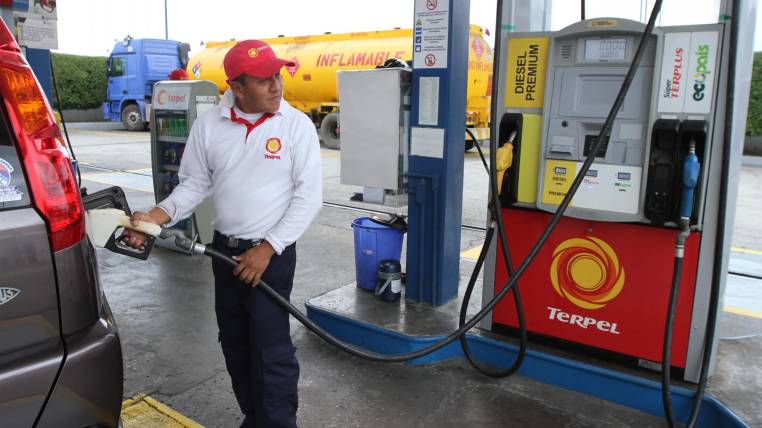Ecuador’s newly inaugurated President, Daniel Noboa, is confronting the complex issue of fuel subsidies just two months into his term. The move follows the footsteps of his predecessors, Lenín Moreno and Guillermo Lasso, both of whom attempted to curtail state spending on fuel subsidies. Noboa’s focus, however, is on implementing a targeted approach to reduce the annual expenditure of $3.2 billion in fuel subsidies, particularly in the automotive sector.
At the end of 2023, the State allocated a significant budget of $3.2 billion to fuel subsidies, an amount that could nearly cover the outstanding debts to social security, suppliers, and sectional governments, which stood at $3.584 billion in December 2023.
Addressing the issue on January 24, 2024, President Noboa proposed a targeted strategy that could potentially slash the annual subsidy spending by at least 25%, with an assurance that taxi drivers and public transportation would remain unaffected.
The Ministry of Finance, under the guidance of Juan Carlos Vega, had already hinted at the possibility of subsidy targeting in December 2023. Vega estimated potential savings between $1.5 billion and $2 billion through this approach but did not elaborate on the specific details of the proposed scheme.
Will 3rd time be a charm?
Noboa is the third president since 2018 attempting to implement targeted fuel subsidies, a strategy that involves limiting benefits to specific sectors rather than providing general subsidies. Previous efforts to reduce fuel subsidies date back to 2018 when Lenín Moreno’s government eliminated the subsidy for Super gasoline. In 2022, Guillermo Lasso’s administration removed the subsidy for large shrimp farmers.
However, history reveals the challenges associated with implementing targeted subsidies.
In 2018, during Moreno’s presidency, there was an attempt to focus subsidies on diesel and low-octane gasoline, Extra and Ecopaís. The government aimed to reduce the subsidy and increase the price of these fuels. Despite proposing a compensation system using prepaid cards for taxi drivers, the plan was unsuccessful due to fiscal fund constraints and challenges in coordinating beneficiary databases.
A second attempt to target subsidies occurred in 2022 under Lasso’s government, but it faced resistance from social organizations, leading to a national strike. The government eventually reduced fuel prices and promised to open a dialogue for targeted subsidies. While progress was made in defining exclusion criteria during the dialogue tables, the commitment to implementation waned after Lasso’s term ended prematurely.
Former Minister of Government Francisco Jiménez, a participant in the 2022 dialogue tables, suggests that President Noboa should resume the work of these tables. The tables had outlined criteria for excluding certain populations from subsidy benefits, such as vehicle owners with high cylinder capacities, high-income individuals, and those with multiple vehicles.
A huge challenge
However, challenges persisted after the tables closed, with no political will demonstrated by the Lasso government to move forward with implementation. Social organizations were also dissatisfied with unmet requests for additional social subsidies, including concessions for small and medium farmers, fishermen, and various agricultural sectors.
As President Noboa ventures into this challenging terrain, he faces the task of reviving the dialogue tables and overcoming the hurdles that thwarted previous attempts at targeted fuel subsidies.
The success of such an approach would not only impact the country’s fiscal responsibility but also address the long-standing political implications associated with fuel subsidy reforms.


I think it’s high time for this adjustment! Not EVERYONE needs that assistance.
There was definitely a lack of will with the Lasso government. Lots of promises and no will for change. He did a little with the military and police, but nothing to root out corruption. The Noboa administration has a lot to face, with the debt and the cost of the increased police and military presence. I hope it will end soon, but it’s unlikely to and I hope there’s a solution to paying government workers and others.